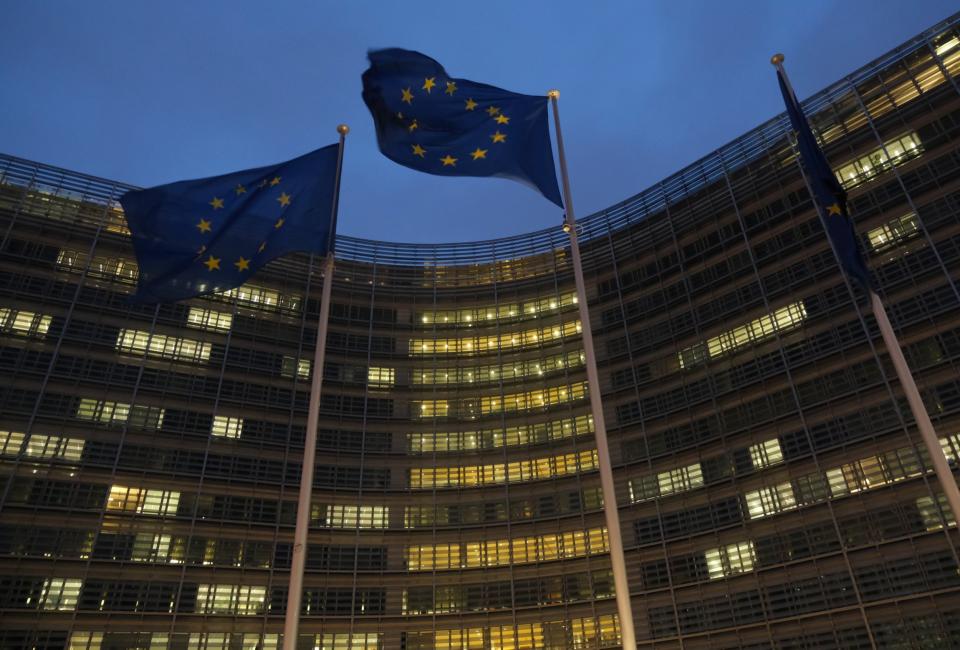EU has been able to make ‘quantum leap’ without UK, Brussels’ ambassador says

The EU has been able to make "quantum leaps" in European integration since Britain signalled its exit from the bloc, Brussels' ambassador to the UK has said.
In his first public appearance since the UK left the single market on 31 December João Vale de Almeida said he did not think any other countries would follow Britain's example.
"After Brexit, after the referendum in 2016, we see support for Europe going up in all our countries, at least on average. Going up, not down," he told an event hosted by the UK-based think-tank Bright Blue.
"I don't see any country, not even any important opposition party in Europe, advocating exit from the European Union since the referendum.
"And I see the European Union, in the last few years, taking a number of very important and bold decisions that lead me to say that the Union is, with all its problems that we all have in these non-normal times, that the union is is is doing quite well."
Mr Vale de Almeida, a former ambassador to the United States who took his current role last year, cited the EU's response to the Covid-19 crisis as evidence that the bloc was doing fine without Britain's input.
"We made a quantum leap in terms of equipping ourselves with the financial means and the financial mechanisms to deal with this crisis, which are absolutely unprecedented in magnitude in terms of the amount of money," he said.
"But also in qualitative terms we're doing things that some people call a 'Hamiltonian moment'... I prefer to say a 'Monnet moment' or a 'Schuman moment', in terms of our founding fathers.
"In a nutshell: Brexit did not produce new Brexit, or new exits – Brexit produced increased support for the European Union, and in the last few years after Brexit, we were able to make quantum leaps in the way we organise ourselves, and the way we set out goals."
EU countries have jointly worked together to procure equipment and vaccines during the course of the outbreak at a time of global shortage.
Its leaders also agreed a vast €750 billion (£667 billion) coronavirus recovery fund to help kick-start the economies of its 27 countries as they emerge from the crisis.
Watch: 10 ways to Brexit proof your finances
Read More
Scottish fishing industry protests over Brexit trade deal at Whitehall
This is not just a shortage, it’s an M&S Paris Brexit shortage

 Yahoo News
Yahoo News 